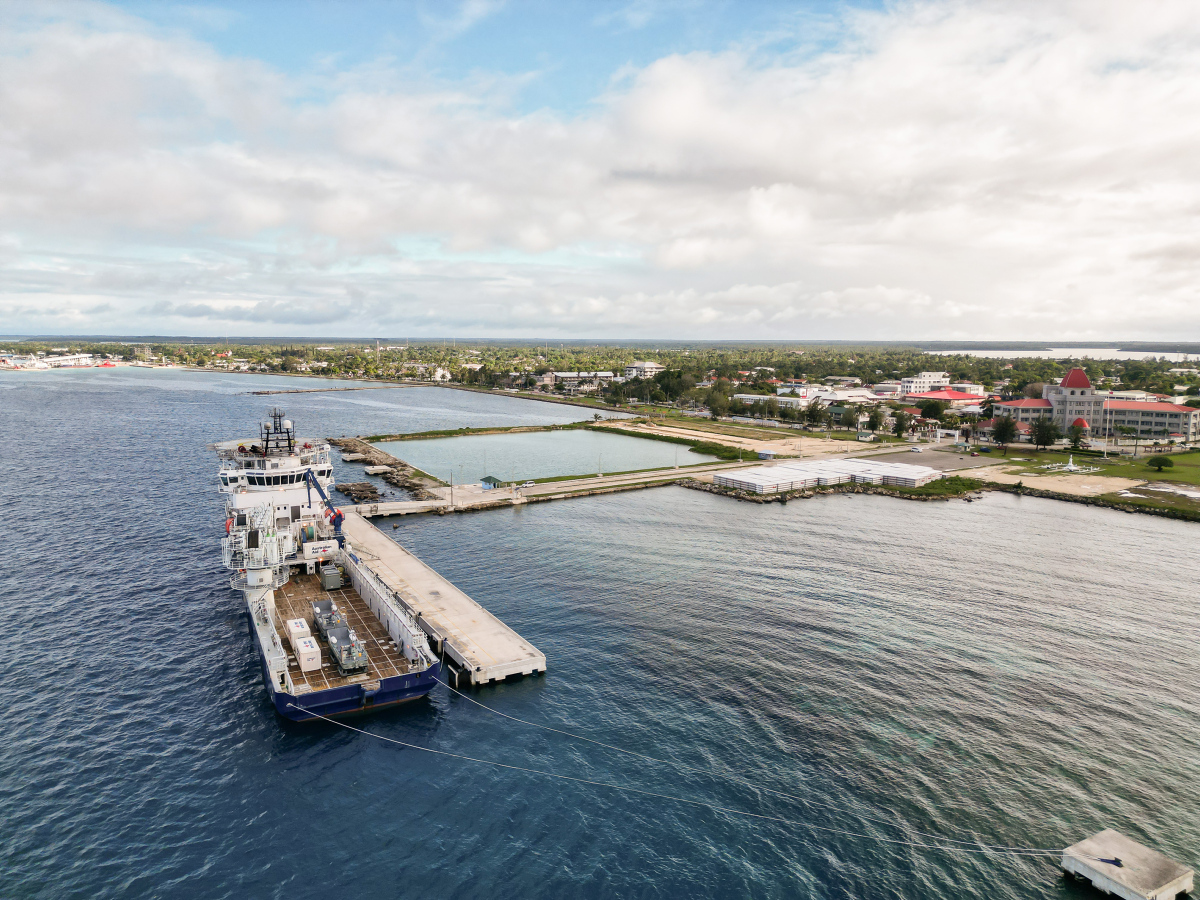NATO leaders gather in the Lithuanian capital, Vilnius, this week and Ukraine will dominate the summit. Anthony Albanese will be there. Security is global so it’s positive that he is attending. But we can’t escape our own region. Fortunately, there’s good news here.
The US is finally starting to walk the walk in the Pacific. In May, the US signed a Defence Co-operation Agreement with Papua New Guinea that allows the US military to deploy assets to select PNG military bases in the event of an emergency.
It’s a nice counterpunch to what China’s got going with Prime Minister Manasseh Sogavare in Solomon Islands. If the US-PNG agreement is properly funded and staffed, then PNG will become a key location for the US to build some real influence in Melanesia.
Anytime our principal ally gets access to a piece of strategic territory is a good thing. PNG lies across some of the most significant air and sea approaches that link us to our defence and trading partners in north America and Asia.
The test will be what the US makes of it. Let’s hope we’ll see increasing US rotations through PNG. The challenge for the US will be not to do too much or too little, to keep it as a priority over the long term, and not something that’s hot for a few months and then drops off the radar screen. To ensure that Port Moresby is glad they signed the deal, the US will need to make clear that it’s all about Papua New Guineans, not the Americans.
The US deal with PNG to counter illicit transnational maritime activity through joint at-sea operations and the US agreeing to share satellite data with PNG to enhance its maritime domain awareness capabilities will also be useful if it helps close gaps in enforcement. We can assist by deploying Royal Australian Navy or Border Force patrol boats, or both, to work co-operatively with PNG and US assets in patrolling PNG’s waters.
The US will provide funding support for PNG’s ability to address transnational organised crime-enabled corruption and money laundering. In theory that’s helpful, although it would be more useful if the US intelligence community were directed against Chinese organised crime activities and other corrupt Chinese activities in PNG.
The US and Australia should now be looking to build defence infrastructure at Milne Bay at the extreme southeastern tip of PNG. A glance at an atlas shows why the bay attracted the attention of Japanese strategists more than 80 years ago. It offers better potential defensive coverage of the vital Solomon and Coral seas than Manus Island more than 500 nautical miles to the north.
Palau and the Federated States of Micronesia have recently signed their Compacts of Free Association with the US and they now go to congress for approval and appropriation.
The third, with the Marshall Islands, has yet to be signed.
Beijing’s goal is to undermine these entities’ relationships with the US.
The compacts provide a prerogative for the US to operate its military bases in the countries and a veto over other countries’ military access to the region.
COFAs provide the US military with the ability to respond to potential contingencies in the Taiwan Strait, in the South China Sea, in the East China Sea, or on the Korean peninsula.
I
t’s good news that Washington has recently opened embassies in Solomon Islands and Tonga, with another planned for Kiribati. It’s appointed a US special envoy to the Pacific Islands Forum and re-established Peace Corps programs in four island states.
It’s noteworthy that AUKUS has the blessing of Fiji, the Federated States of Micronesia, and Samoa. A few island governments have expressed concern over keeping the region a nuclear-free zone, but only Tuvalu has condemned AUKUS. The island states have expressed no real anxiety about the Quad. Fiji, given its large Indian diaspora, is positive given India’s involvement. The Micronesian states appear supportive given close ties with the US and Japan.
The Pacific Islands find it difficult to counter Chinese coercive activities on their own. We need to work in concert not just with the US, but friends like New Zealand, Japan, France, Britain, Taiwan, and others. The islands have appreciated the Israel-Pacific Food Security Alliance providing agricultural training. South Korea recently held its first summit meeting with Pacific Island leaders.
At a summit with 14 Pacific Island countries in Port Moresby in May, Indian Prime Minister Narendra Modi announced a 12-point action plan for the region focusing on health, community development, and renewable energy. As I’ve argued with Cleo Paskal:”Island countries who believe in and are willing to fight for democracy, a free press, the right to practice their faith, and to start a business are looking for close partners. One country they want to learn more about is India”.
The recent performance by the US in the Pacific Islands region is a model of how to reverse strategic decline. Working with the US and partners to offer the island countries more viable options is the best way to prevent our Pacific family aligning with a strategic competitor.
Anthony Bergin is a senior fellow at Strategic Analysis Australia and an expert associate at the National Security College. A version of this article appeared in The Australian 10 July 2023

